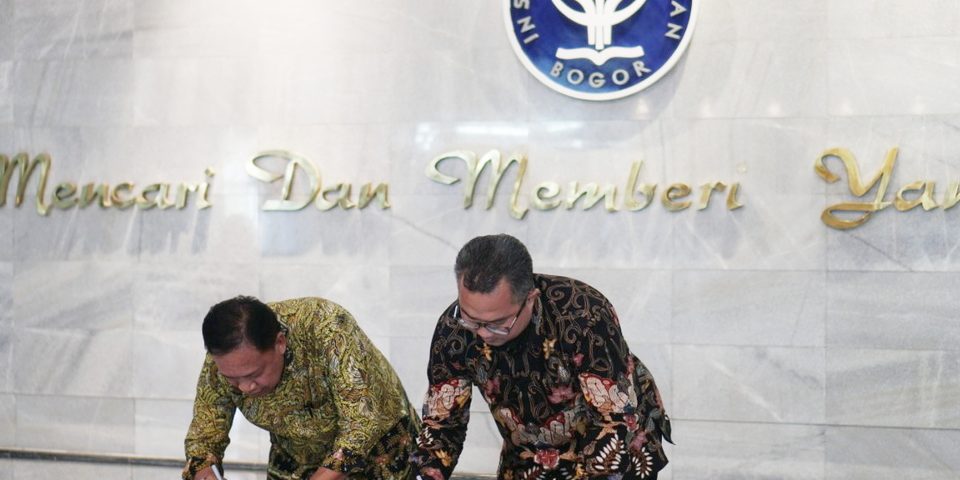Jakarta. Indonesia’s palm oil lobby group and one of the country’s most prominent agricultural research institutes signed memorandum of understanding in Bogor, West Java, on Tuesday on the development of sustainable palm plantations.
The agreement between the Indonesian Palm Oil Association (Gapki) and Bogor Agricultural University (IPB) emphasizes technology-based research and development to meet the challenges the palm oil industry faces both at home and abroad. Quality enhancement, economic efficiency and environmental aspects will be among the main topics of the research.
“This cooperation is integral to face challenges in the palm oil industry, nationally and internationally. I believe the IPB has great potential for innovation, through technology and agriculture,” IPB president Arif Satria said. “We have a lot of ongoing research on palm oil that must be tested and perfected.”
The IPB is currently testing a fertilizing system dubbed Precipalm in the provinces of Riau, Lampung and North Sumatra. The system will allow plantations to use 15 percent less fertilizer.
Additionally, the IPB is also conducting research on the recycling of palm oil waste and turning it into plastic products.
Gapki chairman Joko Supriyono expressed his gratitude for the IPB’s support of the palm oil industry. He said this cooperation would advance the industry’s search for a more sustainable product and help the country achieve some of its sustainable development goals.
Joko said this cooperation would also lay the foundation for studies on palm oil and centralize palm oil research at one institution.
“Anyone who wishes to learn about palm oil – researchers or experts – can come here. Not only that, of course completed research can be further expanded,” he said.
“Indonesia is one of the largest producers, exporters and even consumers of palm oil in the world; it’s about time we’ve had our own research center, so we have a facility to learn and conduct research on palm oil. Hopefully, we can also find strategic solutions to the challenges this industry faces,” Joko added.










